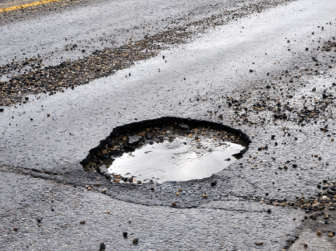As the December holidays approach, traffic officials across the country will be on high alert for increased traffic volumes as holidaymakers head off for a much-needed December break which is traditionally a high-risk period on all South African roads.
According to the AA, stats from the Road Traffic Management Corporation (RTMC), show a spike over the festive season. For the 2021 festive period which runs from 1 December 2021 – 11 January 2022, there were 1 808 fatalities and 1 395 fatal crashes over this period.
With fatalities at unacceptably high levels motorists are reminded to travel responsibly. And, if you are towing a trailer, a boat or a caravan, towing should be done correctly to avoid damage to your vehicle and accidents on our roads.
Dewald Ranft, Chairman of the Motor Industry Workshop Association (MIWA), a proud association of the Retail Motor Industry Organisation (RMI), says the first thing to ensure is that the trailer or caravan has been properly serviced by a competent and accredited repairer. “These have probably been standing idle since last December. During the service the following areas should receive special attention: brakes (if fitted); electrical connections and components such as lights, cables etc; wheel bearings (these need to be greased if the trailer has been standing for a lengthy period); and tyres with emphasis on the tyre age i.e. cracks etc.”
While you’re having your trailer or caravan serviced, it’s also a good idea to have your car serviced, or at the very least give it a thorough check before your journey. If you invest in a vehicle service plan through MotorHappy, your services will be budgeted for throughout the year with fixed, affordable monthly payments. This will help you avoid any car servicing costs when you’re trying to make that December salary last a little longer. Click here to get a quick, obligation-free online quote.
 Make sure you have the right gear
Make sure you have the right gear
Before loading your luggage, be sure your vehicle is equipped to handle the trailer. Double check the weight of your own vehicle and compare it to the weight of the trailer. The weight that your vehicle can tow can be found in the owner’s manual. Look for the GTW, or the gross trailer weight, and the maximum tongue weight. Keeping those two numbers in mind you can then select the right hitch to meet your needs.
 Don’t neglect your tyres
Don’t neglect your tyres
Before hitting the road, you’ll want to ensure the trailer’s tyres are inflated to the recommended pressure level. Cold pressure is recommended, as it will allow the trailer to be towed smoothly at a high speed for hours at a time.
 Double check that everything is in working order
Double check that everything is in working order
Before even hooking up the trailer, check to ensure all its essential features are working properly. This includes testing all the turn signals and brake lights multiple times, as well as parking lamps and hazards. You don’t want to be caught in a situation where you are away from home only to realise that your lights aren’t functioning as necessary.
 Be cautious when on the road
Be cautious when on the road
Even after you’ve checked that your vehicle and trailer are both in proper working order and the trailer is properly hitched, continue to be cautious while on the road. Stop about 20 minutes after beginning your travels to inspect the trailer and make sure it’s still secure. After your first check, continue to take breaks every couple of hours to make sure the tyres are properly inflated. It is also a good idea to go around to each tyre and check the temperature. If one tyre feels hotter than the others, it is a good sign that is lacking air or has a leak. This can be done either with an infrared thermometer or simply through touch. Taking these extra precautions will ensure that you’ll be traveling safely to your holiday destination.
It takes practice to tow a trailer safely. Take care when driving, especially over taking other vehicles. Remember to factor in the extra length and consider the speed you’re travelling at, which will be slower than when you’re not pulling a trailer. When turning, remember to take a wider turn.
Make sure you and your family are safe on the roads, especially if you’re pulling a trailer. Driving when towing a trailer requires additional skills and safety precautions. Stay safe!
The 2022 Toyota GR86 generates more horsepower and torque than ever before
Introducing the new Citroen C3 Max


